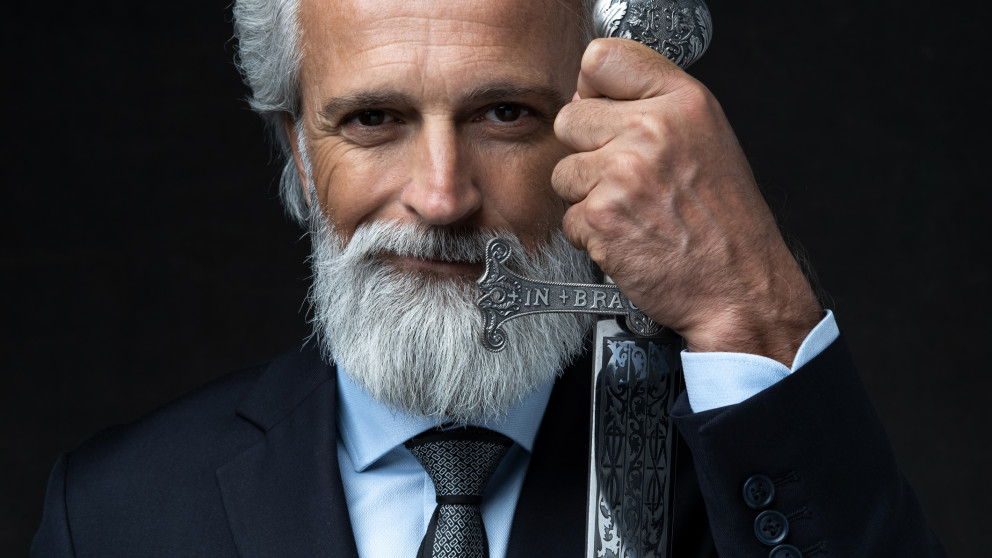On Warriors and Heroes - Group Dynamics at the UN Climate Conferences
26.11.2024

Thomas Bruhn & Jeremy Dommnich
Shortly before the recently concluded COP29 UN climate conference in Baku, we published a new paper in which we consider the role and effects of group dynamics on negotiations at the climate conferences. Drawing on participant observations from COP28 in Dubai and interviews with negotiators, we analyse key group dynamic structures and consider their impacts on communication. In our conclusion, we recommend that the facilitation and moderation of informal discussions and meetings be strengthened so that participants can engage in honest exchange and overcome vested interests.
The article reflects on the authors’ experiences of several conferences and examines the COP’s various arenas, from plenary sessions down to the "smallest" formats, identifying a number of issues along this axis of inquiry.
The huge number of participants alone (some 80,000) made COP28 an historic event. One phenomenon that particularly caught our attention was the role of regressive tendencies in negotiations – a defensive response in which individuals temporarily revert to an earlier stage of their personality development, defined by simpler behaviour and relationship patterns. The comments of one experienced participant from the political sphere, who referred to the conference as a "battlefield" where there were "no negotiators, only warriors”, highlight the force of these tendencies. The rigid structure of the plenary session acts as a so-called "regression brake", limiting the scope for exchange between individual negotiators to a distanced exchange of words in order to prevent regressive behaviour from dominating interactions. But while the rigid structure of the plenary sessions prevents regression, these tendencies come to the fore in informal, less structured meetings. Overall, a contradictory picture of the COP emerges, defined by impressive individual commitment and care for the planet and – parallel to this – an atmosphere of resignation, frustration and mistrust.
Our research suggests that this contradiction is rooted in the way in which participants engage in dialogue with each other (or do not, as the case may be). Given the emotionality, complexity and urgency of the negotiations, the interactions between negotiators and their emotional experience of the negotiations as a whole are essential to establishing an inclusive and trust-building process. The strength of this link between the quality of the outcome and the quality of the process was recently demonstrated at the 16th Conference of the Parties to the Convention on Biological Diversity, where, after 24 hours of intense debate, the negotiators ultimately failed to reach a consensus due to exhaustion. These observations support the central thesis of our paper: namely, that the existing body of research on the environmental, economic, and political dimensions of climate negotiations should be complemented by socio-psychological research that examines their processes and group dynamics.
From this perspective, the most interesting formats are the so-called "informal" and "informal-informal" meetings, which we describe in more detail in our paper. Here, our research shows that the structures necessary to support quality communication are not in place in those areas where individual negotiators can still have an effective impact. Nevertheless, it is precisely in these informal moments that the concrete wording of the COP declaration is negotiated and actual progress is made. This situation places an onerous burden on small countries in particular (these have fewer staff on the ground) and causes “quieter” voices to go unheard. This poses a dilemma for the countries of the Global South, which must grapple with the impacts of climate change in their domestic arenas but lack the personnel to bring about effective change.
Our analysis places a great deal of responsibility for these formats with the respective chairpersons and our recommendations therefore focus on these key figures. On the one hand, we recommend that the group dynamic competence of the chairs be strengthened and formats for relationship building be introduced. This could be achieved, for example, by integrating phases for emotional regulation and knowledge integration in semi-structured small group discussions. Similarly, setting aside the technical aspects of the COP, more support is needed for participants in the run-up to the conferences to help them navigate their own needs, their roles as state representatives and the collective desire for action.
Finally, there needs to be a serious debate "at home" about who "we" send to the COP and what mission they should be tasked with achieving. If the COP is indeed to remain a battleground for the defence of individual state interests, then it is only logical that we send "warriors". However, if we want the COP to become a place where people forge a collective response to this planetary challenge, then we not only need people-friendly structures, but also people with the appropriate interpersonal skills and the ability to engage honestly with each other in order to find solutions that look beyond the interests of individual states. Perhaps what we need to achieve this are "global heroes and heroines”...
Dommnich, J.J.R., Bruhn, T. On psychosocial group dynamics during multilateral conference negotiations: experiences from COP28. Gr Interakt Org (2024). https://doi.org/10.1007/s11612-024-00772-2
